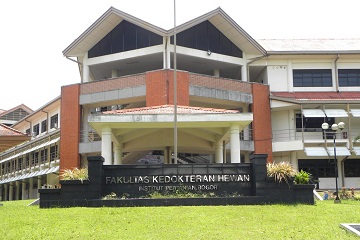Antioxidants Help Prevent the Risk of Degenerative Disease

Professor Chair Holder of the Faculty of Veterinary Medicine of Bogor Agricultural University (FKH IPB), Prof. Drh. Tutik Wresdiyati, Ph.D., PAVet, has carried out various research programs on the interaction of free radicals and antioxidants to the medical health and its related fields. Free radicals are the byproduct of the chemical processes that happen in our body. For example, when you absorb Vitamin D from exposure to UV rays, your body will chemically process it, creating free radicals as it converts the energy over. " So do not be afraid of free radicals because free radicals are needed in the body's metabolism, free radicals act as signal substances that cause the heart to beat with the correct force, " said Prof. Tutik.
Naturally the metabolism that takes place in the cells of the body will produce a byproduct molecule known as free radicals. Actually free radicals also have the role that the body needs such as the process of maturation of cell structures, body defense systems, and regulation of various functions between cells. As a by-product of molecules, free radicals will always exist in the body, but only in excess circumstances becomes very dangerous, because these molecules can attack healthy cells.
Prof. Tutik said that antioxidants can inhibit damage to free radical target cell biomolecules. A balance between free radicals and antioxidants is necessary for proper physiological function. If free radicals overwhelm the body's ability to regulate them, a condition known as oxidative stress ensues. "Antioxidants is needed by the body to neutralize excess free radicals and contribute to disease prevention. Antioxidants are also naturally produced in the body, although it is still needed intake of antioxidants from outside the body with the ideal amount. Your body creates them to help fend off viruses and microbes, but if you have too many, they can cause serious damage and contribute to certain cancers and heart disease, and even leads to a disease called degenerative disease, "Prof. Tutik said.
Degenerative disease is the result of a continuous process based on degenerative cell changes, affecting tissues or organs, which will increasingly deteriorate over time, whether due to normal bodily wear or lifestyle choices such as exercise or eating habits. When an overload of free radicals cannot gradually be destroyed, their accumulation in the body generates a phenomenon called oxidative stress. This process plays a major part in the development of chronic and degenerative illness such as cancer, autoimmune disorders, aging, cataract, rheumatoid arthritis, cardiovascular and neurodegenerative diseases. The condition is also referred to as oxidative stress in which there is a lack of antioxidants or increased free radical production. Though currently there is no cure for age-related macular degeneration (AMD), it appears there are a number of things you can do to reduce your risk of getting the disease and experiencing AMD-related vision loss. The delicate balance between their two antagonistic effects is clearly an important aspect of life..
Prof Tutik Wresdiyati suggested, the consumption of natural antioxidants is important. "In our diet there are sources of useful antioxidants such as vegetables and fruits. Antioxidants occur naturally in plant-based foods such as fruits, vegetables, coffee, tea, wine, and chocolate. While there are thousands of antioxidant compounds out there, you’ve probably heard of flavanols (found in chocolate), resveratrol (found in wine), and lycopene (found in tomatoes). Especially when you're sick and you are cold, or weak, takes antioxidants more than usual, "said Prof. Tutik.
One of the results of research that supported the provision of antioxidants in overcoming degenerative diseases also presented by Prof. Tutik. The degenerative diseases they studied were diabetes and obesity in cats. Prevention of the disease is done through the provision of animal feed extracts of mahogany seeds named Mahobes. (Wied)



